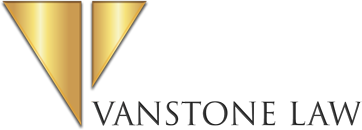A well-governed board is essential for the success of any organization. In Canada, there are several key elements that contribute to effective board governance. These include:
- Board composition: The board should be composed of a diverse group of individuals with the skills and experience necessary to provide effective oversight and guidance to management. The board should also have a majority of independent directors who are not affiliated with the organization’s management team.
- Board roles and responsibilities: The board’s roles and responsibilities should be clearly defined and documented. The board should be responsible for setting the organization’s strategic direction, overseeing management’s performance, and ensuring that the organization is in compliance with all applicable laws and regulations.
- Board meetings: The board should meet regularly to discuss the organization’s performance and make necessary decisions. Board meetings should be well-organized and productive, and directors should be prepared to discuss the issues at hand.
- Board committees: The board should establish committees to assist with its oversight duties. Common board committees include the audit committee, the compensation committee, and the nominating and governance committee.
- Board evaluation: The board should regularly evaluate its own performance to ensure that it is functioning effectively. This evaluation should include a review of the board’s composition, roles and responsibilities, meeting procedures, and committee structure.
In addition to these key elements, effective board governance in Canada also requires a strong relationship between the board and management. The board should provide clear direction and oversight to management, but it should also allow management the flexibility to run the organization on a day-to-day basis. The board and management should also work together to develop and implement a risk management framework.
Here are some additional tips for effective board governance in Canada:
- Set clear expectations for directors: The board chair should work with the board to develop and document clear expectations for directors. These expectations should include the roles and responsibilities of directors, the time commitment required, and the code of conduct.
- Provide directors with adequate information: Directors need to have access to the information they need to make informed decisions. This includes financial information, performance reports, and risk assessments.
- Foster a culture of open and honest communication: The board chair should create an environment where directors feel comfortable asking questions and expressing their views.
- Encourage regular board development: Directors should have the opportunity to participate in regular board development activities. This will help them to stay up-to-date on the latest governance best practices and to develop the skills and knowledge they need to be effective directors.
By following these tips, organizations in Canada can create and maintain effective boards that will help them to achieve their strategic goals.
This article is for informational purposes only and is not legal advice. Contact us today to discuss your specific situation.
